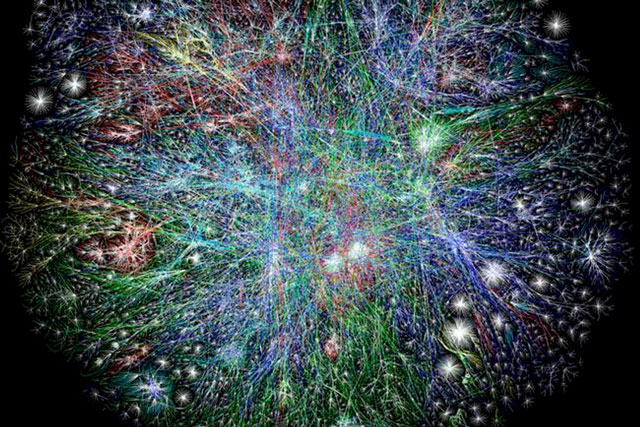Each month The Forum questions members of The Marketing Society on a hot topic. For more on membership, visit www.marketing-society.org.uk.

YES
TRESILIAN SEGAL HEAD OF MARKETING NORTHERN EUROPE, ADOBE
Continually connected devices have become mainstream, creating more data than ever. This provides a great opportunity for marketers, who, with the right tools, can identify the data their businesses require. Organisations can deliver more-targeted, relevant messages across multiple channels and devices, giving a consistent brand experience.
As more devices come to market that allow us to understand how people behave, share and interact with us, the information available makes it possible to personalise interactions and cultivate loyalty.
Long-lasting, meaningful relationships with customers are driven by offering value and relevant information at the right time, through the right channel, so using the internet of things seems like a natural step for marketers.

YES
JEREMY NICHOLDS EXECUTIVE DIRECTOR, COMMERCIAL DEVELOPMENT, VISA EUROPE
We are surrounded by sensors, ever-more integrated into our lives, with the opportunity for the devices we use daily to be networked. Any object with a digital "heartbeat" could be connected, enabling a multitude of "transactions". We’re starting to see smart homes and appliances; smart power grids; smart transport networks, cars and road systems; and smarter security and access control.
Will we have self-ordering refrigerators, cars that negotiate best prices for petrol based on the route you programme into the satnav, phones that pay the bill as we leave the store? Possibly. So how do marketers influence brand selection in tomorrow’s more automated world, and what are the implications for pricing, distribution and partnerships? One certainty is that customer experience has to remain centre stage.

MAYBE
DEBBIE KLEIN UK CHIEF EXECUTIVE, ENGINE
The internet of things promises greater relevance and personalisation, and products that are infinitely more useful and intelligent. Google’s acquisition of Nest, which makes smart devices for the home, highlights the internet of things as a crucial building block in the next evolution of marketing, but also raises questions over who will "own" our data.
People want to live in more intelligent homes, but nobody expects their data to be abused. In this respect, brands will have to offer transparency. Ultimately, developments such as smart homes should make life easier – and that’s what brands are here to do for people.
The internet of things is exciting, and brings the potential for communications specialists and brands to steer the next iteration of the internet. It will drive cultural change, but will it revolutionise marketing? It is still too early to say.

YES
ANIL PILLAICHIEF EXECUTIVE, DIGITASLBI
You only have to visit Apple’s App Store or flick through the pages of Wired to see that the internet of things has arrived, with connected cars and wearable devices leading the way.
We’re moving into a new phase in the life of the internet, where the web will transcend the screen and, I would venture, eventually become invisible. If today’s marketers are in the business of creating experiences to enrich customers’ lives, then the growth of connected devices, and the data this offers us, opens up huge opportunities for brands.
The challenge for marketers will be to use this technology to create services people want and need. As in the early days of the internet itself, what the internet of things needs now is standardisation and better examples of connected, useful experiences.

MAYBE
JAMES LAWTON-HILL HEAD OF MARKETING, BROTHER UK
Connected devices that know what we eat, where we drive and how warm we like our homes will lead to an even bigger amount of consumer data that brands can analyse.
However, the key is to understand that this is a two-way buy-in. Use of data for more personalised marketing needs to have the ultimate goal of improving and enhancing a consumer’s association with the brand, not to make them feel exploited by it.
Brands and agencies must move quickly to understand this new world, but ensure they strive to keep things simple and not overcomplicate matters. High-performance creative and great storytelling will still be at the heart of making a success of the new connected world in which we will all operate.

YES
ANDREW MCGUINNESS CHAIRMAN, SEVEN DIALS
Yet another thing that’s going to revolutionise marketing? I can hear the sighs in boardrooms up and down the country.
We’re right to be cynical, but to underestimate the potential impact of the internet of things would be a mistake. Don’t take my word for it – Google’s placed a $3.2bn bet on it through its acquisition of Nest.
The connection of everyday objects to the internet has the potential to change everything from biometric measurement that could automatically order you a meal to keep you healthy, to a freezer that knows when to order more oven chips.
Yes, these things are often overblown at the beginning – but who, 20 years ago, would have anticipated quite how fundamentally the internet has changed everything? On this one, it’s safe to assume that those guys at Google aren’t daft.


